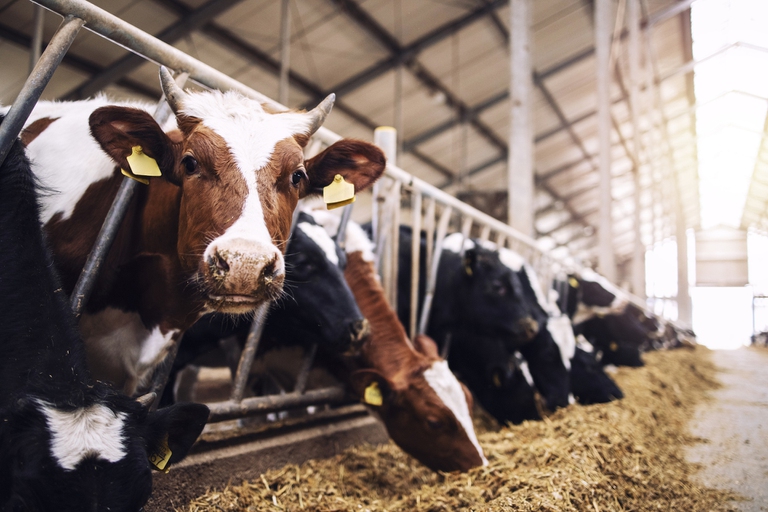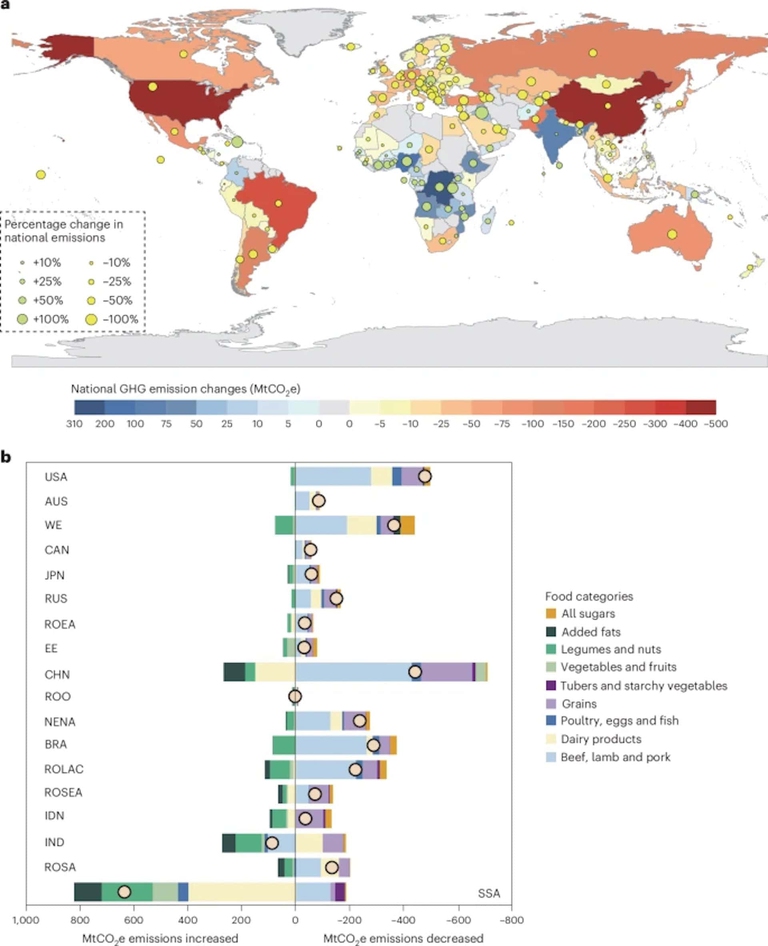https://www.lifegate.it/noci-legumi-riduzione-emissioni-sostemi-alimentari
- |
- Food consumption contributes to greenhouse gas emissions, but not in the same way within and between countries.
- According to the calculations of a study, a dietary change of the world population towards healthier and more sustainable foods would save 17 percent of emissions from food systems.
- The global supply of meat would decrease by 81 percent, that of legumes would increase by 438 percent.
The food choices of the world's population can make a difference in greenhouse gas emissions.Exactly how and how much one calculated it study by the University of Groningen, in the Netherlands, published on Nature Climate Change, according to which the current ones annual emissions from the global food system would decrease by 17 percent with the worldwide adoption of Eat-Lancet planetary diet which essentially involves a remodulation of the protein intake with a reduction in meat consumption in favor of legumes And nuts to improve the health of the population and, at the same time, the environmental impact of consumption.

The study:“To protect health, the planet and fight hunger, we need to change eating lifestyles”
The study highlights how not everyone contributes the same way to food-related emissions because of disparity in lifestyle, in food preferences andeconomic accessibility within and between different countries.High levels of food consumption (particularly animal protein-based diets) lead to substantial emissions.At the same time, over 700 million people still suffer from hunger and nearly 3.1 billion people cannot afford a healthy diet.However, extending current food production will further aggravate the climate changes.The solution therefore consists in change lifestyles and consumer choices towards healthier diets, aligned with United Nations sustainable development goals which also allow us to combat hunger and protect health.
The scholars examined household food expenditure in 139 countries or areas about 140 food products.Within individual countries, consumer groups with higher spending possibilities generally cause more food emissions due to a greater consumption of red meat and dairy products.This inequality is more pronounced in low-income countries.According to calculations, more than half of the world's population (56.9 percent), who currently consume too much meat and animal products, would save the 32.4 percent of global emissions through dietary changes.This would compensate for the15.4 percent increase in global emissions of populations who currently consume little and who would move towards healthier and more nutritious diets.In this way, as mentioned above, it would be obtained that net global reduction in emissions by 17 percent (compared to 2019 levels).

Less meat, more legumes:the dietary change needed to reduce emissions from food systems
The study reads:“We found that, compared to plant-based products, animal-based products, particularly red meat and dairy, show greater potential to reduce both emissions volumes and emissions disparities between different spending groups.Priorities lie in reducing excessive consumption of specific emissions-intensive products in rich countries, such as beef in Australia and the United States, to achieve health and climate benefits."Dietary changes would result in a decrease in the overall supply (in calorie content) of red meat of the81 percent, while that of legumes and nuts would increase by 438 percent.

How could diet change be encouraged?According to scholars, they are necessary incentives, such as implementing subsidies or taxation on environmental externalities through the price of food,climate labeling and theexpansion of product availability with lower emissions intensity.
